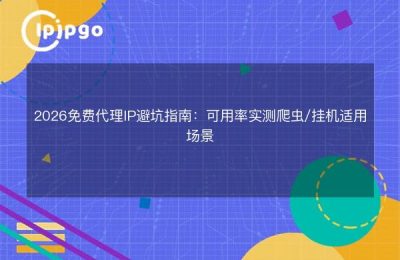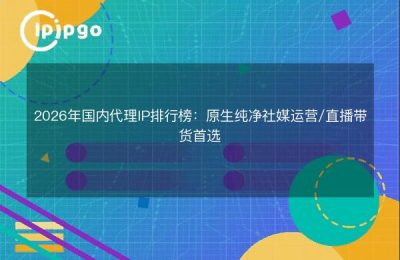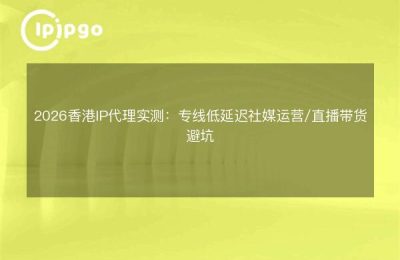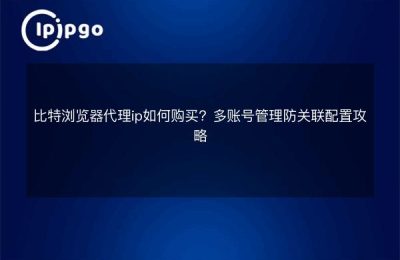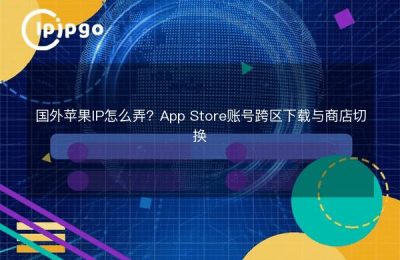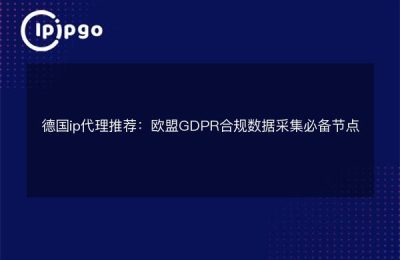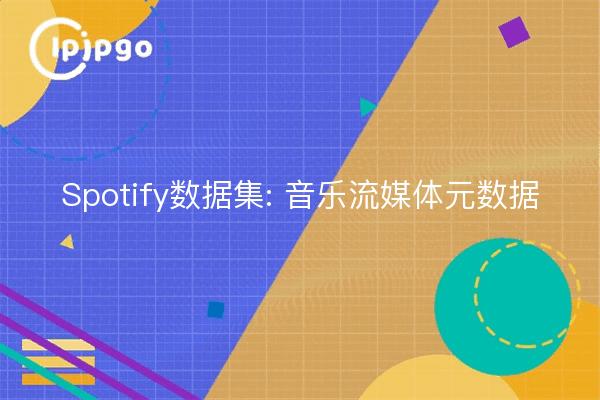
What happens when music data hits an IP block?
Music data friends may have encountered this situation: crawlers crawl Spotify album information, artist information, suddenly be blocked IP. Don't be in a hurry to curse at this time, in fact, the problem lies in theSingle IP High Frequency AccessThis pit. It's like when you go to the supermarket to buy water and empty the shelves in a minute, who's going to stop you if the security guards don't?
at this momentipipgo's Dynamic Residential Proxy will come in handy. Their IP pool covers more than 200 countries and automatically changes vests with each request. For example, if you want to download the metadata of a certain song list in bulk, you may rest in half an hour with a normal proxy, but you can keep working by switching to a rotating proxy.
import requests
proxies = {
'http': 'http://user:pass@gateway.ipipgo.net:9021',
'https': 'http://user:pass@gateway.ipipgo.net:9021'
}
response = requests.get('https://api.spotify.com/v1/tracks', proxies=proxies)
Avoiding the three main minefields of data collection
These three potholes are the easiest to fall into when messing with music data:
| problematic phenomenon | method settle an issue |
|---|---|
| Suddenly received a 403 error | Switch ipipgo's mobile IP now! |
| Slower data capture | Enable high speed channel + concurrent requests |
| Missing data in specific areas | Capture using local residential IP |
Especially the piece of localized content, some album covers show up differently in different countries. This is a good time to use theipipgoThe localization function, which selects the export node of the corresponding country, can get the most original version of the data.
Troublesome maneuvers in the real world
Once I helped a client to capture playback data, I found an evil phenomenon: I could get the complete playback times with US IP, but I could only see the fuzzy range with European IP. Later, we usedipipgo(used form a nominal expression)City-level positioningfunction, specifically picking the residential IP in Los Angeles, the data field is really 3 more.
And here's a cold fact: Spotify's API is more forgiving of mobile requests. Use theipipgo's 4G agent simulates cell phone traffic, which can boost the average daily collection from 50,000 to 200,000 entries, and is not prone to triggering risk control.
A must-see QA session for beginners
Q: Why do I have to use a paid proxy? Doesn't the free one work just as well?
A: Free proxies are like paper towels in a public restroom, eight times out of ten there is no paper. Professional services such as ipipgo not only guarantee availability, but also automatic retry, request interval control these life-saving features.
Q: Will it conflict to have more than one crawler on at the same time?
A: In the ipipgo backend create differentsession identifierJust do it. Each crawler goes through a separate IP channel, which is much more reliable than ripping out your own network cable at home.
Q: How do I break the CAPTCHA when I encounter it?
A: They have a familyLive Action ModeIt can simulate the human click interval. Tested with the mouse movement track simulation, CAPTCHA trigger rate can be reduced by about 70%.
Don't capsize on the details.
One final note on an easily overlooked pitfall:time zone settingSome Spotify data fields change according to the time zone of the requesting IP, such as the time of the first release of a new song. Once I used Brazilian IP to grab the data, and found that the release time was 13 hours later than the actual time, then I locked the New York time zone in the ipipgo backend to solve the problem.
If you're losing your hair over music data collection, tryipipgo(used form a nominal expression)7 Days No Reason Trial. New users also get a 10G traffic pack for signing up, enough to strip down Jay's full set of metadata. Remember to use the promo codeMUSIC2024It's a 20% discount, so it's a no brainer.

